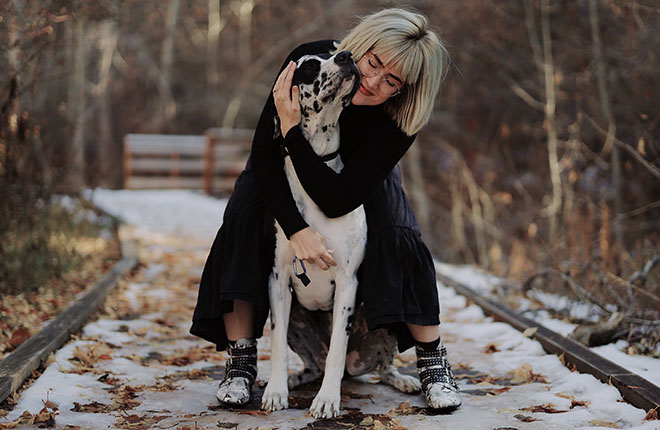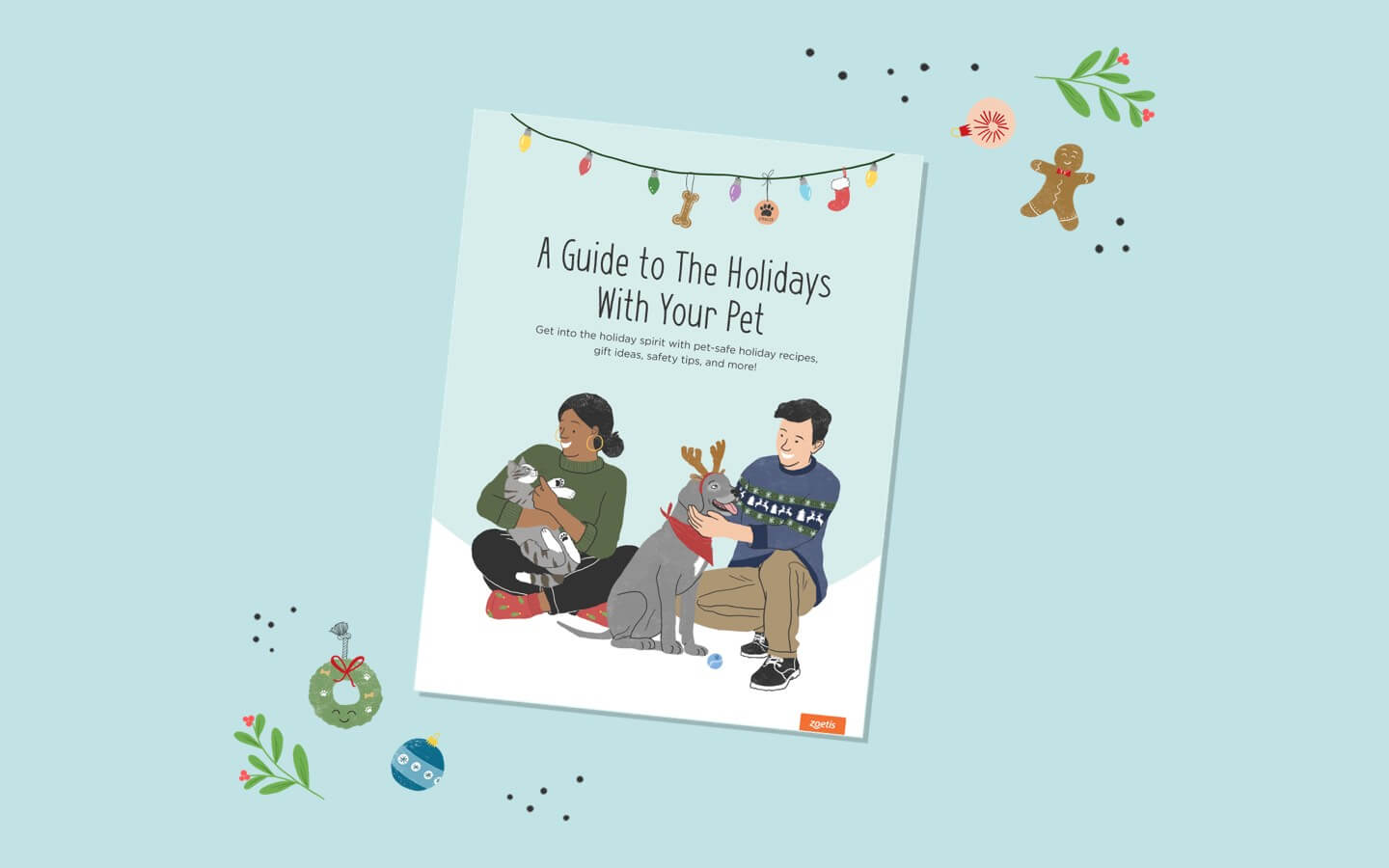Ringing in the new year is a great time to reset and establish new routines, as well as add in a resolution or two — for both you and your pets. Whether it's making a commitment to get outside more or staying up to date on your pet's vaccinations, a new year is perfect for self–care and pet care. Here are five things you can do starting January 1st to benefit your pets and yourself.
Schedule Annual Vet Wellness Appointments
Annual wellness visits are a key part of what veterinarians call preventive care — actions taken to protect your pet and identify potential problems before your pet becomes sick or injured. Wellness examinations for healthy pets are recommended at least yearly, and every six months for dogs and cats that are older or that have known health issues. Wellness visits are also a great opportunity to build the relationship between you, your veterinarian, and your pet. Get into the habit of scheduling your pet's wellness exam at the same time every year so it is easy to remember and ask your veterinarian about automatic reminders that can be sent to you before your appointment.
Get (and Keep) Your Pets Up to Date on Their Vaccinations
Vaccinations are another important part of preventive care. Making sure your pets are current on required and recommended vaccinations can help prevent them from contracting certain diseases. Dogs can get diseases like Bordetella, canine influenza, Lyme disease, and leptospirosis. Cats can get diseases like feline leukemia virus (FeLV), feline rhinotracheitis, and respiratory illness from feline calicivirus. For the health of both pets and people, perhaps the most important reason to maintain your pet's vaccines is for protection against rabies. Rabies can be transmitted to humans and is nearly 100% fatal to both people and pets (both cats and dogs).
Set Up Reminders for Medications
Giving your pet's medications on time is important to ensure the medications work as intended and to avoid falling behind on whatever is being treated. For example, missing a monthly preventative dose puts your pet at risk for diseases from fleas and ticks as well as heartworm disease. For all of us, life can get busy and we risk forgetting our pet's medications. To make things easier on yourself — and safer for your pet — start the year by signing up for our medication reminders to make sure you never leave your best friend at risk.

Get in Some Exercise
Many people commit to losing weight or embracing a healthier lifestyle with the start of a new year. Getting outside for a hike or walk with your dog is a great way to get some steps in! New sounds, new smells, and new places can make for an adventure your dog will thank you for. For your cat, encourage them to get moving with a laser pointer, feather toy, or other interactive toys and reward them for play with yummy cat treats (in moderation, of course).
Make Time for Mental Health and Self Care
We all know how important self-care is, especially when dealing with life’s stressors. Thankfully, owning a pet can provide you physical and mental benefits such as lowering blood pressure[1], helping with depression[2], and reducing anxiety[3]. Express your gratitude for all your pets do for you by treating them to some self-care too! Learning how to groom your dog or cat at home, trim their nails, and brush their teeth are all ways to help your pets’ hygiene and comfort. As you turn over the calendar page into the new year, set a plan to make it the happiest and healthiest yet for you and your pets.
ZPC-00985R1
- Allen, K., et al. Pet ownership, but not ACE inhibitor therapy, blunts home blood pressure responses to mental stress. Hypertension 38 (2001): 815–820.
- M. A. Souter and M. D. Miller, “Do animal-assisted activities effectively treat depression? a meta-analysis,” Anthrozoos 20.2 (2007): 167–180.
- Beetz, Andrea, et al. Psychosocial and psychophysiological effects of human-animal interactions: the possible role of oxytocin. Frontiers in Psychology 3 (2012): 234.





